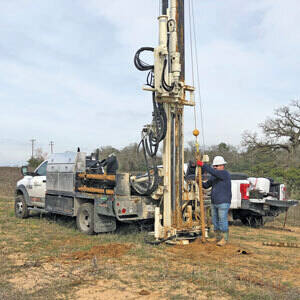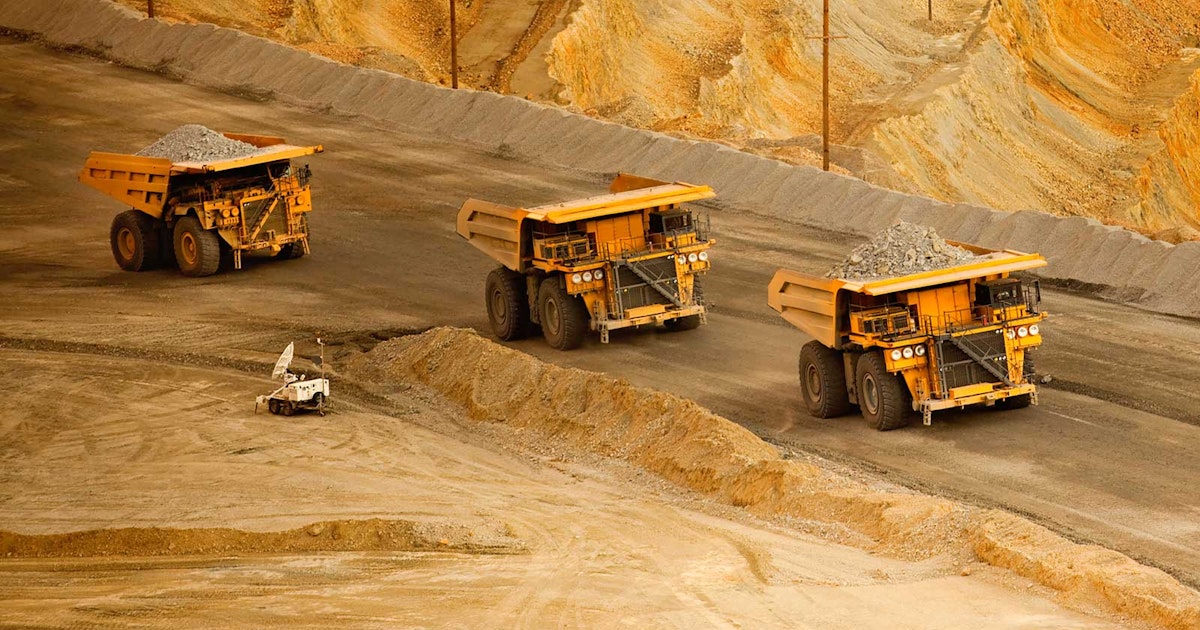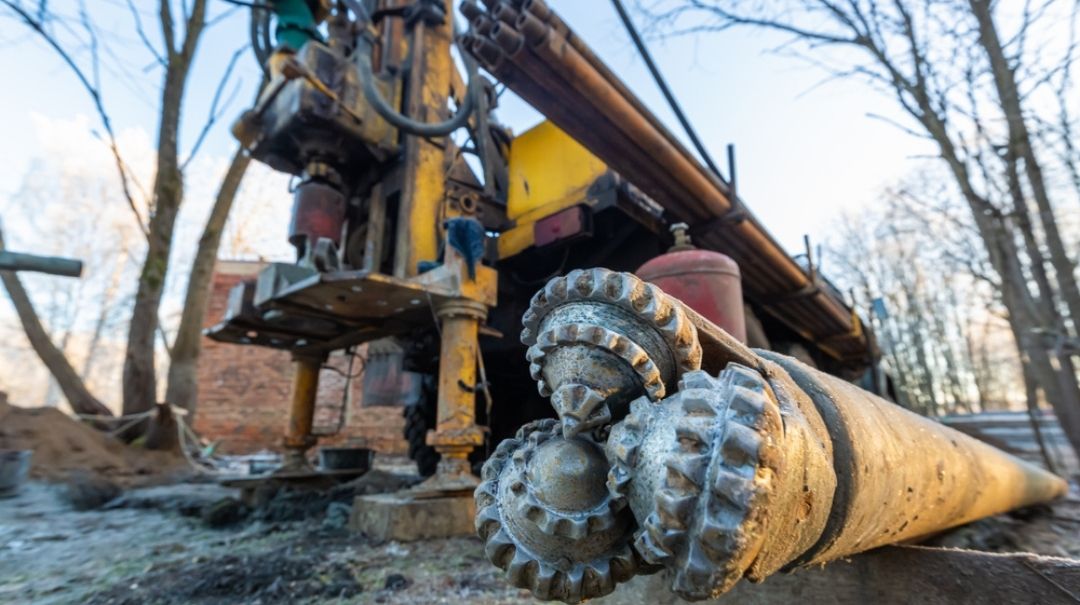Why All About Geotechnical Engineering Matters in Today's Facilities Advancement
Why All About Geotechnical Engineering Matters in Today's Facilities Advancement
Blog Article
The Value of Geotechnical Design in Addressing Ecological Challenges and Enhancing Building And Construction Security
Geotechnical engineering serves as a keystone in the junction of ecological stewardship and construction safety, supplying important understandings right into the behavior of soil and rock under numerous conditions. By applying tactical website investigations and customized mitigation steps, geotechnical engineers play a vital duty in safeguarding both human lives and ecological honesty.

Function of Geotechnical Engineering
Geotechnical design plays a vital duty in the style and construction of infrastructure by dealing with the actions of dirt and rock products under numerous conditions. This area of design is crucial for understanding the interaction between frameworks and the ground, that includes establishing the load-bearing ability of soil, assessing security, and anticipating possible negotiation or failing.
Geotechnical engineers are responsible for conducting website investigations, which include sampling and testing dirt and rock to collect information on their chemical and physical residential or commercial properties. This details is vital for designing foundations, preserving walls, and various other earth-retaining structures that ensure security and durability. Additionally, geotechnical engineering educates the choice of suitable construction techniques and products, thus decreasing dangers associated with soil behavior.
Furthermore, the integration of geotechnical engineering principles into city preparation and environmental management is crucial for resolving challenges such as ground contamination and groundwater administration. By recognizing geotechnical aspects, engineers can develop lasting solutions that boost the resilience of facilities versus natural hazards, while likewise promoting environmental stewardship. Eventually, the function of geotechnical design is important for attaining secure, durable, and ecologically conscious building and construction methods.
Soil Erosion Reduction
Dirt disintegration postures a substantial hazard to both ecological security and infrastructure integrity, influencing about 24 billion lots of fertile soil lost each year worldwide. This sensation is aggravated by variables such as deforestation, urbanization, and bad agricultural practices. Geotechnical design plays a pivotal role in developing reliable soil disintegration mitigation strategies that secure both the atmosphere and building projects.
One strategy entails the implementation of erosion control approaches such as greenery planting, which maintains dirt via origin systems. Additionally, the construction of preserving wall surfaces and balconies can properly decrease surface area drainage and safeguard vulnerable locations from disintegration. Proper drain design is additionally important; it lessens water accumulation and routes excess runoff far from vital structures.
Moreover, geotechnical engineers utilize dirt stabilization techniques, such as the application of geotextiles and biodegradable mats, to enhance soil cohesion and protect against destruction - all about geotechnical engineering. Regular tracking and evaluation of erosion-prone websites make it possible for prompt treatments, ensuring long-term sustainability. By incorporating these approaches, geotechnical design not just reduces the influences of dirt erosion yet likewise adds to the resilience of framework versus ecological difficulties, inevitably fostering a more secure and a lot more sustainable constructed environment
Groundwater Defense Techniques
Groundwater serves as an important source for alcohol consumption water, agriculture, and commercial procedures, making its defense crucial for ecological sustainability and public wellness. Effective groundwater defense approaches are crucial in mitigating contamination risks and ensuring the long life of this resource.

Routine surveillance of groundwater high quality is also important, allowing very early discovery of contamination resources and promoting timely remediation efforts. Using innovative innovations, such as geophysical surveys and remote noticing, aids in recognizing potential risks to groundwater reserves.
In addition, public education and stakeholder interaction are crucial, promoting neighborhood support for groundwater defense campaigns. about geotechnical engineering. By combining regulative measures, technological advancements, and neighborhood participation, we can develop a detailed structure that safeguards groundwater sources while promoting sustainable growth and building practices
Landslide Risk Administration
Landslides pose substantial threats to both human safety and facilities, making reliable risk management approaches necessary. Geotechnical engineering plays a vital duty in recognizing, analyzing, and mitigating landslide threats. A thorough understanding of incline security, dirt auto mechanics, and hydrology is crucial for creating effective threat administration plans.
The very first step in landslide threat management includes comprehensive website examinations, which include geological mapping and dirt screening. These investigations help designers assess the possibility for landslides by recognizing crucial variables such as incline angles, soil structure, and water material. Utilizing innovative see this site innovations such as remote noticing and geophysical surveys can enhance the accuracy of these analyses.
Once risks are recognized, ideal mitigation measures can be implemented. These may consist of design solutions such as retaining wall surfaces, drainage systems, and slope stablizing techniques. Keeping an eye on systems should be developed to spot signs of ground movement and adjustments in water levels, permitting for positive treatments.

Enhancing Building Safety And Security
Building sites often provide a myriad of dangers that can jeopardize worker safety and security and job honesty. Geotechnical engineering plays an important duty in enhancing building security by offering vital insights into subsurface problems. With thorough soil and rock evaluation, geotechnical designers can identify potential risks, such as dirt instability, groundwater problems, and seismic vulnerabilities, which might compromise the safety of building and construction tasks.
Implementing geotechnical options, such as proper structure design and the use of retaining structures, mitigates these dangers significantly. These remedies not just guarantee the stability of the structures being built however additionally develop a more secure working environment for construction personnel.
Additionally, fostering a culture of security with training and adherence to developed security methods better boosts construction website safety and security. By incorporating geotechnical competence right into the preparation and implementation stages, building and construction tasks can attain higher safety criteria, ultimately shielding workers visit this site and ensuring successful task completion.
Verdict
In verdict, geotechnical engineering serves as a critical technique in dealing with ecological obstacles and promoting building and construction safety and security. Through reliable dirt erosion reduction, groundwater security techniques, and landslide danger monitoring, geotechnical engineers contribute to the development of resistant important source infrastructure.
Geotechnical design serves as a cornerstone in the junction of environmental stewardship and building safety and security, offering crucial understandings right into the behavior of soil and rock under different problems. Geotechnical design informs the choice of ideal construction techniques and products, thereby reducing threats linked with soil habits.
Geotechnical engineering plays a crucial role in developing efficient dirt disintegration mitigation strategies that protect both the atmosphere and building and construction tasks.
Moreover, geotechnical engineers employ soil stabilization methods, such as the application of geotextiles and eco-friendly floor coverings, to boost dirt communication and protect against degradation. Through detailed dirt and rock evaluation, geotechnical designers can determine prospective dangers, such as dirt instability, groundwater problems, and seismic susceptabilities, which might jeopardize the safety and security of building and construction tasks.
Report this page